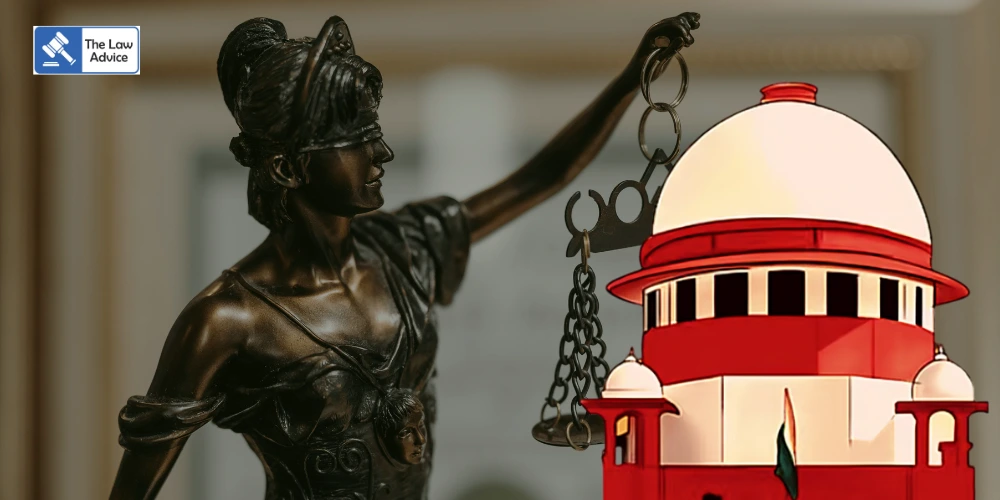In a significant judgment clarifying the interplay between landowners’ rights and the State’s power in slum rehabilitation projects, the Supreme Court has held that under the Maharashtra Slum Areas (Improvement, Clearance and Redevelopment) Act, 1971, a landowner enjoys a preferential right to redevelop slum-affected land before the State, the Slum Rehabilitation Authority (SRA), or slum dwellers themselves can step in.
A bench comprising Justices Surya Kant and N. Kotiswar Singh ruled that the State cannot acquire such land under Section 14 of the Act until the landowner’s preferential right has been duly extinguished. Further, the Court emphasized that the SRA must issue a specific notice inviting the landowner to submit a Slum Rehabilitation (SR) Scheme, and only if the landowner fails to respond “within a reasonable period” can the State proceed with acquisition.
The Court went further to remark on the legislative confusion within the framework of the Slums Act, calling it “poorly structured,” particularly in how Chapter I-A was grafted onto the 1971 Act.
The dispute arose from land in Kurla, Mumbai, owned by Indian Cork Mills Pvt. Ltd. (ICM) since 1970. Over time, hutments mushroomed, and part of the land was declared a slum under Section 4 of the Act. The dwellers later formed the Tarabai Nagar Housing Society (Petitioner Society) in 2002.
• In 2011, SRA declared the entire parcel an SR area.
• In 2012, acquisition proceedings were initiated at the request of the society.
• Although ICM expressed intent to redevelop, it had not submitted a formal SR scheme at the time.
• In 2013, the CEO recommended acquisition, and in 2016 the Government issued a notification acquiring the land.
ICM challenged the acquisition before the Bombay High Court, which sided with the company, holding that SRA had failed to properly notify and invite the landowner’s proposal. The matter reached the Supreme Court on appeal by the Society, SRA, and the State of Maharashtra.
Issues Before The Court
1. Whether a landowner of slum-affected land has a preferential right to redevelop it under Chapter I-A of the Slums Act?
2. Whether SRA must issue a mandatory notice to the landowner before proceeding with redevelopment decisions?
3. Whether the State’s acquisition powers under Section 14 are subject to the extinguishment of the landowner’s preferential right?
1. Preferential Right of Landowners Recognized
The Court held that the landowner’s right to propose redevelopment under Sections 3B(4)(e) and 13(1) enjoys primacy over both the SRA and slum occupants, provided a scheme is submitted within a reasonable time.
If both the owner and occupants present competing redevelopment schemes, allowing the SRA unrestrained discretion would risk arbitrariness and “invite mala fide third-party developers and anti-social elements” to misuse the process.
“There is no tenable reason, in law or in equity, to allow the occupants to steamroll the landowner’s proposal, especially when the latter is willing to implement the SR Scheme by itself.”
2. Notice To Landowners Mandatory
On the second issue, the Court made it clear that the SRA cannot presume a landowner’s awareness of slum notifications. A formal notice inviting the landowner’s proposal is mandatory.
Without such notice, the landowner may lose rights unfairly despite readiness to redevelop. The Court criticized the SRA for treating Gazette notifications as sufficient and called its conduct “admonishable.”
3. Acquisition Power Subordinate To Owner’s Rights
On the third issue, the bench held that Section 14 acquisition powers are not absolute. They must give way to the preferential right under Chapter I-A.
Only if the owner declines to act, or deliberately blocks redevelopment, can the State step in to acquire. Premature acquisition, as in this case, amounts to “colourable exercise of power.”
“Any process to acquire the land shall have to be kept in abeyance till such time as the owner’s preferential right stands extinguished.”
The Court distinguished its earlier ruling in Murlidhar Teckchand Gandhi v. State of Maharashtra, noting that it did not examine Chapter I-A.
The Court strongly rebuked the conduct of the SRA and Maharashtra government, finding their actions arbitrary, unreasonable, and lacking bona fides. It highlighted a “pattern of shifting positions” and raised doubts about the “sanctity and integrity” of the administrative process.
The Supreme Court dismissed the appeals, vacated the 2017 status quo order, and gave ICM 120 days to submit a complete Slum Rehabilitation Scheme.
This ruling strengthens property rights of landowners in slum redevelopment and checks arbitrary State action. By mandating notice and prioritizing landowners’ proposals, the judgment could reshape how redevelopment projects unfold across Mumbai and Maharashtra, where land disputes and slum rehabilitation frequently clash.
Case Title
Tarabai Nagar Co-op. Housing Society (Proposed) v. State of Maharashtra & Ors., SLP(C) No. 19774/2018
